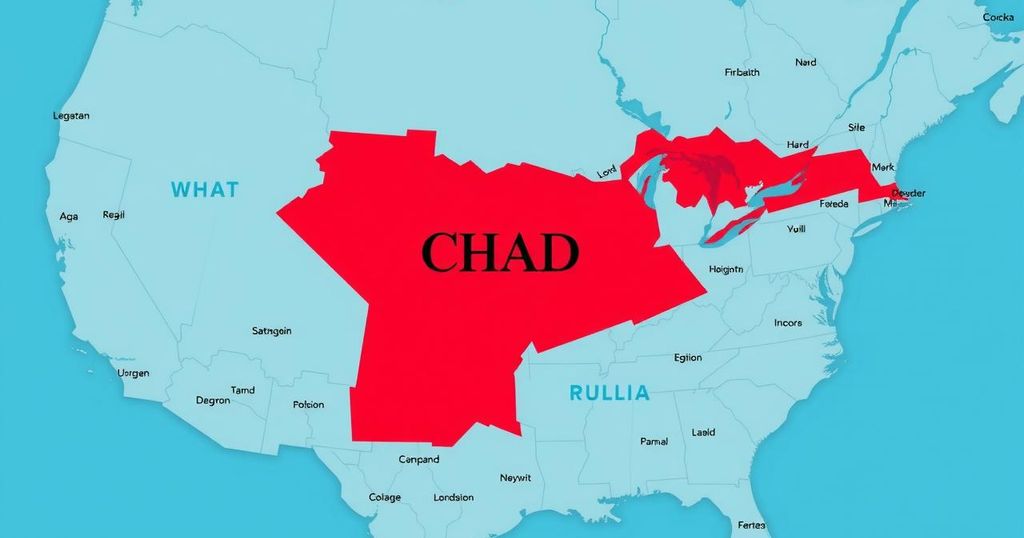Politics
AFRICA, AGREEMENT, AL, ALYSON LE GRANGE, ASIA, CHAD, CURRENT EVENTS, DONALD TRUMP, DURBAN, EGYPT, EMBASSY, EUROPE, FIRSTPOST, FIRSTPOST AFRICA, GLOBAL, GLOBAL SOUTH, JAPAN, KOSOVO, NEWS, NORTH AMERICA, PRIZES, RUTO, SERBIA, SOMALIA, SOUTH AFRICA, SURVIVORS, TRUMP, U. S, UNITED STATES, US, USA, WORLD NEWS
Omar El-Sharif
U.S. Suspends Non-Immigrant Visas for Chad: An Overview of New Travel Restrictions
The U.S. has suspended non-immigrant visas for Chad for 90 days, marking the first application of new visa policies by President Trump. This suspension affects various categories including tourists and students, but Chadians can still apply at other U.S. embassies. The move signals heightened security measures and hints at potential restrictions for over 40 countries, raising concerns about U.S.-Africa relations.
The United States has implemented a suspension on the issuance of most non-immigrant visas for a period of 90 days in Chad. This action represents the initial application of President Donald Trump’s revised visa policies. Affected categories include tourists, business travelers, students, and exchange visitors, although Chadian citizens retain the ability to apply for visas at other U.S. embassies.
This suspension is part of an executive order from President Trump that places greater emphasis on security vetting for foreign nationals. Notably, Chad was previously part of a U.S. travel ban in 2017 but was removed subsequently. Reports suggest that more than 40 countries, particularly in Africa, may face similar visa restrictions moving forward.
Additionally, the Trump administration has made a significant alteration by excluding all African nations from the U.S. Visa Waiver program for the current year, which raises concerns regarding the future dynamics of U.S.-Africa relations. The implications of these developments could have extensive repercussions for diplomatic and immigration policies between the regions.
In conclusion, the Trump administration’s suspension of non-immigrant visas for Chad marks a critical shift in U.S. immigration policy, with the potential for expansive effects on other African nations. This suspension underscores heightened security concerns and limits international travel options for citizens from affected countries. The exclusion of Africa from the U.S. Visa Waiver program further complicates the relationship and could lead to strained diplomatic ties in the future.
Original Source: www.firstpost.com








Post Comment